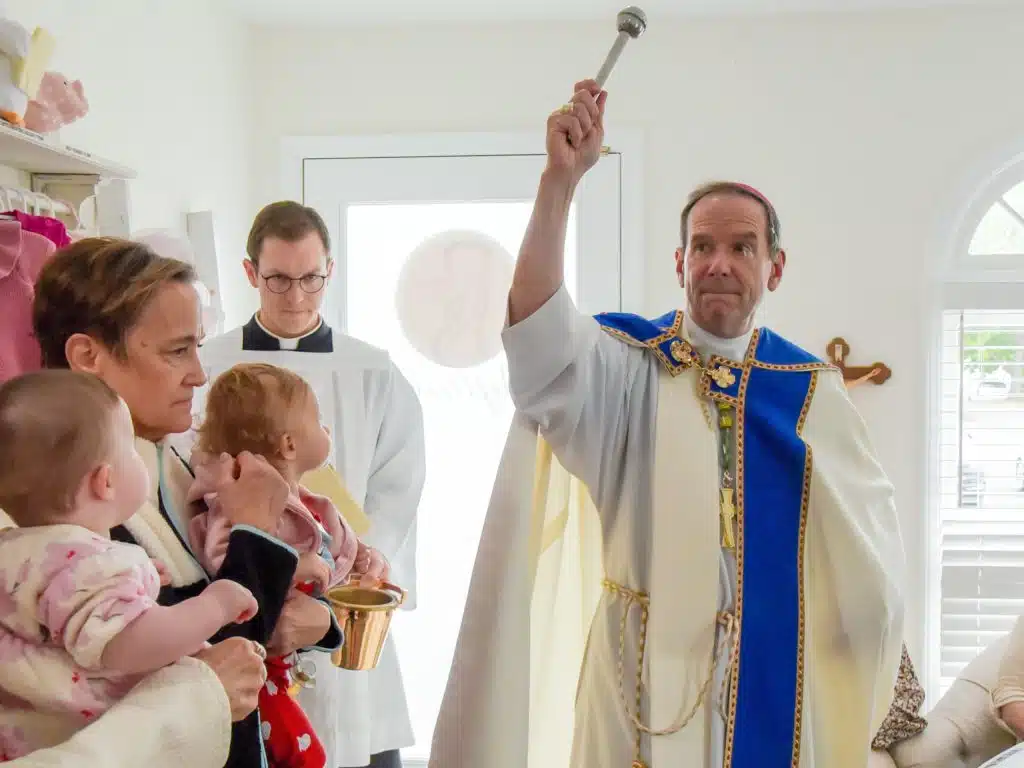The March for Life had a new look this year. When thousands of pro-life demonstrators marched through the streets of Washington Jan. 20, instead of proceeding to the Supreme Court as in the past, they ended their trek across the street at the U.S. Capitol.
The symbolism is correct. And it’s not just the March for Life but the pro-life movement as a whole that needs to shift itinerary as 2023 gets underway.
The Supreme Court did its job last June with the Dobbs decision overturning Roe v. Wade and declaring an end to the fiction that the Constitution confers a right to abortion. Now the essential work of restoring legal protection to the unborn rests with legislatures — Congress and the legislatures of the 50 states.
And there — with the legislative branch — is where the pro-life movement must place immediate emphasis. As matters stand, abortion is largely illegal or at least difficult to obtain in about half the country. Now, while holding onto what already has been achieved, it’s essential to spread the pro-life message even farther. Diligent, continuing spadework by pro-lifers at the state and local levels is needed to persuade wavering state legislators — as well as members of Congress — to take a stand for life or else start looking for work elsewhere.
This is a large challenge but not an impossible one. In a recent New York Times column, Ross Douthat, a conservative Catholic, cites an estimate that by next June, a year after the Dobbs decision, an additional 60,000 unborn lives will have been saved thanks to newly enacted laws in pro-life states. And that is no small achievement.
Plainly, though, winning this battle will not be easy. On the plus side, all pro-life Republican governors who sought re-election last November won, some by strikingly large margins. On the other hand, pro-life ballot initiatives were defeated in Kentucky and Montana (a similar proposal lost in Kansas last summer), while proposals to give abortion protected status in state constitutions were adopted in Michigan, California and Vermont. And now, further complicating things is the upsurge in mail order abortion pills.
But important as the legislative front is, there’s another, still more urgent priority.
The pro-life movement must confront the ugly fact that the pro-abortion side enjoys the blatant, unapologetic support of an ongoing media blitz that includes a sustained assault on the Supreme Court’s conservative justices. This vast free sales pitch comes not only from major news organs like the Times and The Washington Post but from Hollywood and the entertainment industry. Exceptions like The Wall Street Journal and National Review are welcome but few in number.
Here, then, is the supreme challenge now facing the pro-life cause — the contest for public opinion.
What can be done about the media is limited but real. Short, fact-based, polite letters to editors and news managers are necessary and useful. So are personal meetings where they can be arranged. Nothing will change the pro-abortion policy of the Times and the Post, but personal meetings can have an effect with local papers and broadcast stations.
Beyond the media, there’s also the witness of pro-life hotlines and pregnancy centers as well as peaceful demonstrations at abortion facilities. And last, but hardly least, is the powerful force of one-on-one contact with family members, friends, neighbors and fellow workers. Here especially courtesy and good humor are imperative. Insults and shouting alienate, but gentle, firm, patient affirmation of every unborn child’s sacred right to life can win converts to the cause.
Shaw writes from Washington.



